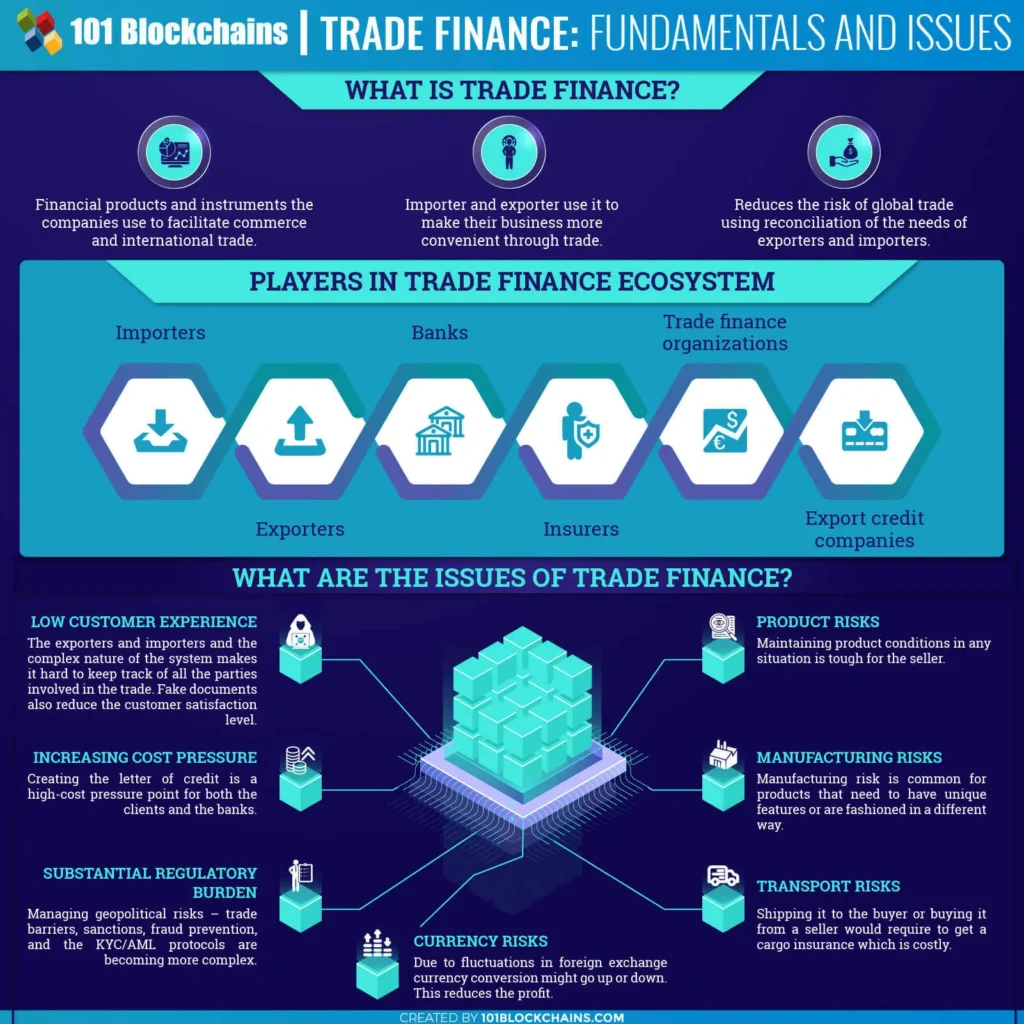
Blockchain technology is having a profound impact on global trade and finance, offering a secure, transparent, and efficient way to conduct cross-border transactions. By eliminating the need for intermediaries and reducing the time and cost of transactions, blockchain is transforming traditional financial systems and enabling new opportunities for businesses and individuals. In this article, we explore how blockchain is reshaping global trade and finance, its benefits, and the challenges that remain.
Streamlining Cross-Border Transactions
One of the most significant ways that blockchain is impacting global trade and finance is by streamlining cross-border transactions. Traditional methods of transferring money across borders can be slow, costly, and subject to various intermediaries, including banks and payment processors. These intermediaries not only add fees to each transaction but can also delay the process, making it difficult for businesses to move money quickly and efficiently.
Blockchain technology offers a solution by enabling peer-to-peer transfers of digital assets, such as cryptocurrencies, without the need for intermediaries. This reduces the cost of cross-border transactions and speeds up the process, allowing businesses to move funds in a matter of minutes rather than days. Cryptocurrencies like Bitcoin, Ethereum, and stablecoins such as USDC are commonly used for cross-border payments, particularly in regions with limited access to traditional banking services.
Additionally, blockchain provides transparency and security for cross-border transactions. Each transaction is recorded on a decentralized ledger that is visible to all participants, making it easier to track the movement of funds and verify the authenticity of the transaction. This level of transparency reduces the risk of fraud and ensures that both parties in the transaction have a clear record of what has occurred.
Reducing Trade Barriers
Blockchain is also helping to reduce trade barriers by simplifying the process of verifying and enforcing trade agreements. In traditional trade, businesses must rely on a variety of third parties, such as customs officials, banks, and shipping companies, to verify the terms of a trade agreement and ensure that goods are delivered as promised. This process can be time-consuming and prone to errors, particularly when dealing with multiple parties in different countries.
Smart contracts, which are self-executing contracts built on blockchain, offer a way to automate and enforce trade agreements without the need for intermediaries. These contracts automatically execute the terms of the agreement once predefined conditions are met, such as the delivery of goods or the payment of funds. This reduces the risk of disputes and delays, making international trade more efficient and cost-effective.
Smart contracts also provide a higher level of security than traditional trade agreements. Because they are stored on a decentralized blockchain, smart contracts cannot be altered or tampered with, ensuring that both parties must adhere to the terms of the agreement. This level of security is particularly valuable in cross-border trade, where trust between parties can be a challenge.
Enhancing Supply Chain Transparency
Blockchain technology is also being used to enhance transparency in global supply chains, providing businesses and consumers with greater visibility into the origins and movement of goods. In traditional supply chains, it can be difficult to track the movement of products from manufacturer to consumer, leading to issues such as counterfeiting, fraud, and unethical labor practices.
By using blockchain to create a transparent, tamper-proof record of each step in the supply chain, businesses can ensure that goods are sourced, manufactured, and delivered according to ethical and legal standards. This level of transparency is particularly valuable in industries such as food, pharmaceuticals, and luxury goods, where consumers demand greater accountability from the companies they buy from.
For example, Walmart has partnered with IBM to use blockchain technology to track the journey of food products through its supply chain. By recording each step of the process on a blockchain, Walmart can quickly trace the origin of a product in the event of a food safety issue, ensuring that contaminated items are identified and removed from shelves more efficiently.
Challenges in Adopting Blockchain for Global Trade
Despite its potential, the adoption of blockchain for global trade and finance is not without challenges. One of the main obstacles is the lack of regulatory clarity. Because blockchain operates across borders, it can be difficult to determine which country’s laws apply to blockchain transactions. Different countries have taken varying approaches to regulating blockchain and cryptocurrencies, creating a complex and sometimes inconsistent regulatory environment.
Additionally, blockchain’s scalability is a concern. While blockchain can handle small-scale transactions efficiently, larger networks, such as those used in global trade, may struggle with network congestion and high transaction fees. As blockchain technology continues to evolve, solutions such as layer 2 scaling and interoperability between blockchains may help address these scalability issues.
Another challenge is the integration of blockchain with existing systems. Many businesses still rely on legacy systems for their trade and financial operations, and integrating blockchain technology into these systems can be complex and costly. Ensuring that blockchain solutions are compatible with existing technologies will be key to their widespread adoption.
The Future of Blockchain in Global Trade and Finance
Despite these challenges, the future of blockchain in global trade and finance looks promising. As regulatory frameworks become more supportive and blockchain technology continues to improve, we can expect to see increased adoption of blockchain-based solutions in the global trade ecosystem. From cross-border payments to supply chain transparency, blockchain has the potential to streamline and secure international trade, making it more efficient and accessible for businesses of all sizes.
In addition, the rise of decentralized finance (DeFi) platforms, which use blockchain to provide financial services without the need for intermediaries, is likely to play a significant role in the future of global finance. DeFi platforms offer services such as lending, borrowing, and trading on a global scale, enabling individuals and businesses to access financial services without relying on traditional banks.
Conclusion
Blockchain is transforming global trade and finance by reducing the need for intermediaries, streamlining cross-border transactions, and enhancing supply chain transparency. While there are still challenges to overcome, including regulatory uncertainty and scalability issues, the potential benefits of blockchain are too significant to ignore. As the technology continues to evolve and mature, we can expect to see even greater adoption of blockchain-based solutions in global trade and finance, creating new opportunities for businesses and individuals alike.






